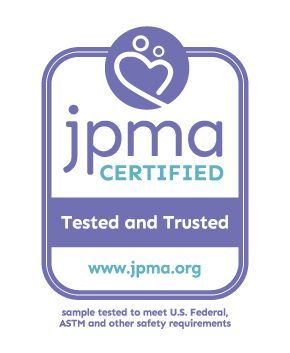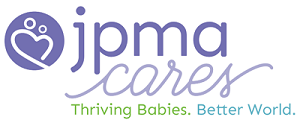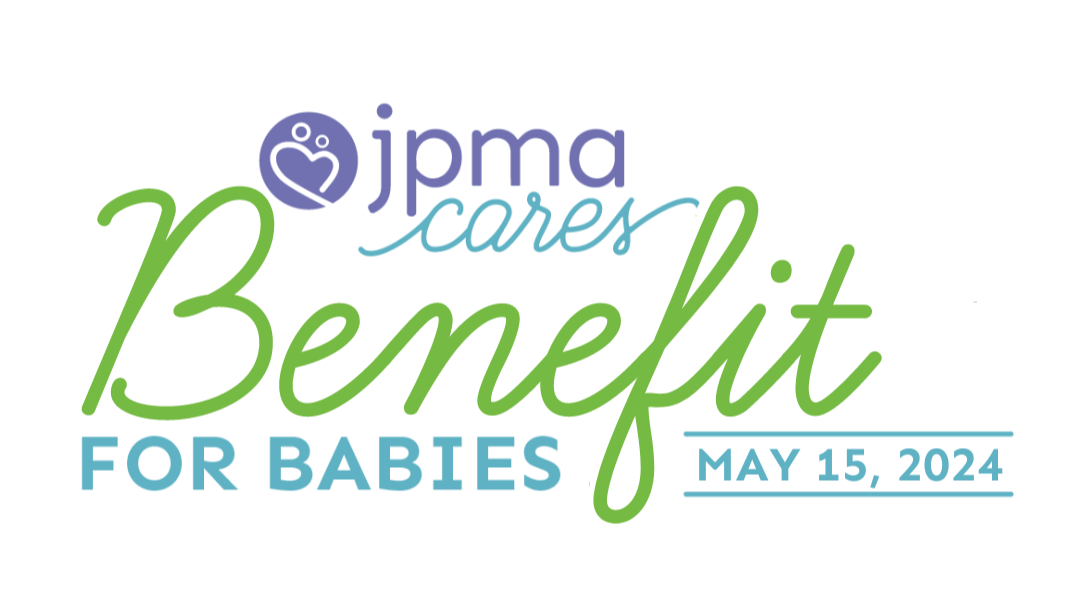JPMA 認證經過測試並值得您的家人信賴
作為嬰兒和兒童產品品質和安全行業的代言人,JPMA 幫助您為您的家庭選擇和使用最好的嬰兒產品。 JPMA 屢獲殊榮的認證計劃對29 個不同類別的2,500 多種產品進行了測試,以確保產品符合性能安全的最高標準。您的產品或包裝上的JPMA 認證印章表明它已經過所有聯邦和州法規、自願法規的測試。ASTM 標準以及其他主要零售商的要求,均由 CPSC 認可的獨立實驗室進行。 JPMA 認證的產品每年都會根據最新標準進行測試,以獲得更多保證。可以獲得 JPMA 認證的產品類別包括:
嬰兒監視器
搖籃/搖籃
浴室座椅
浴缸
沐浴者
床頭枕
櫥櫃安全鎖和插銷
馬車/嬰兒車
換尿布台
兒童折疊椅
嬰兒床床墊
可擴展的門和外殼
餵食加高座椅
框架嬰兒背帶
全尺寸嬰兒床
手持式嬰兒背帶
高腳椅
嬰兒搖椅
嬰兒地板座椅
嬰幼兒搖椅
嬰兒鞦韆
嬰兒學步車
玩碼
便攜式床欄
便攜式掛鉤椅
吊帶架
軟質嬰兒背帶
固定式活動中心
幼兒床
如果一家公司參與某個特定類別,則該類別中的所有模型都會經過測試並獲得 JPMA 認證。換句話說,如果一家公司被列為嬰兒車和嬰兒車類別認證企業,那麼該公司的所有嬰兒車(無論款式、顏色等)均已獲得 JPMA 認證。按類別或按製造商查看 JPMA 認證產品目錄中的認證計劃參與者及其類別的完整列表。JPMA 認證產品經過測試且值得信賴,讓家長在為孩子購買最安全的產品時高枕無憂。購買嬰兒時請注意 JPMA 認證印章!

您有 JPMA 認證的嬰兒床並需要更換零件嗎?檢查追蹤標籤!雖然 JPMA 對產品進行安全認證,但他們不生產嬰兒床或更換硬體。嬰兒床的追蹤標籤通常位於嬰兒床腿之一的內側。它將包含以下資訊:製造商或品牌名稱生產地點原產國製造日期批號一旦獲得此信息,您可以訪問製造商的網站索取更換零件、查看說明手冊和警告等。如果您對產品有任何疑問JPMA認證計劃或需要更多信息,請通過jmcghee@jpma.org 或(703) 299-8212 聯繫JPMA 認證與標準助理Jailynn McGhee。
JPMA 認證常見問題解答
What is JPMA Certification? What does a JPMA Certification Seal mean?
Baby and children’s products must meet minimum federal requirements based on safety and use. The JPMA Certification Seal signifies a product meets these and additional requirements. To become certified, each product is sample-tested at an independent laboratory to verify it meets the highest standards for safety, performance and functionality.
JPMA Certification is voluntary, and it is based on adherence to ASTM standards, federal and state laws and some retail requirements. The program is designed to provide peace of mind to parents that these products have been independently tested to the most stringent standards.
What chemical testing is included in the JPMA Certification Program?
The JPMA Certification Program tests to all federal and state chemical safety requirements for juvenile products. Our protocols require compliance with all 50 states, regardless of where the product is sold. These requirements restrict chemicals such as lead, cadmium, mercury, antimony, flame retardants, phthalates and more.
What is ASTM? Are ASTM’s standards required?
ASTM International, formerly known as the American Society for Testing and Materials (ASTM), is a globally recognized leader in the development and delivery of international voluntary consensus standards. Today, thousands of ASTM standards are used around the world to improve product quality, enhance safety, facilitate market access and trade, and build consumer confidence. The JPMA Certification Program is built on ASTM standards. ASTM standards do not widely address chemical safety but are focused on performance and general requirements. ASTM standards are voluntary, but the JPMA Certification Program and many federal rules for juvenile products rely on the ASTM standard as the basis for their own requirements.
What is the CPSC? What does it mean to test to CPSIA?
The Consumer Product Safety Commission (CPSC) is the federal agency tasked with regulating consumer products. Despite its huge responsibility, the CPSC does not (and cannot) certify or test each individual product on the market. The CPSC has rulemaking and enforcement tools to help regulate consumer products. Signed into law in 2008, the Consumer Product Safety Improvement Act (CPSIA) gave the CPSC a significant role in creating and enforcing federal requirements as they pertain to children’s products. Testing to CPSIA means that a manufacturer meets or exceeds the federal requirement for their product. All JPMA Certified products must test to the applicable federal regulation.
What is the difference between JPMA Certification and GreenGuard Certification?
There are various differences between the two programs. Primarily, JPMA does not create its own requirements, but rather relies on federal, state, ASTM and major retailer requirements to make up its testing protocol. The JPMA Certification Program is a third-party verifier that a company has met or exceeded all of these safety requirements. GreenGuard Certification is more focused on chemical safety and is in addition to existing regulations. Many JPMA Certification Program participants are also GreenGuard Certified.
What is the difference between JPMA Certification and UL Verification?
Underwriters’ Laboratories, or UL as it is universally known, tests and evaluates a variety of products and components. UL’s label on electronics and small appliances is the most recognizable. It means that the product has been found to be free from a reasonably foreseeable risk of fire or electric shock in most environments. The JPMA Certification Program verifies compliance with the UL program for any products that have an electrical component.
What is Prop 65? Why is there a Prop 65 warning on my baby product?
Proposition 65 requires businesses to provide warnings to Californians about possible exposures to chemicals that cause cancer, birth defects or other reproductive harm. California’s Office of Environmental Health Hazard Assessment (OEHHA) maintains the list of Prop 65 chemicals that it considers harmful, and it updates the list at least once a year. At the latest count, the Prop 65 list contained more than 900 chemicals. These warnings are on a wide range of products and have to be posted in California businesses as well, if applicable. Despite being specific to California, all JPMA Certified products are required to have the Prop 65 warning. For many products, this warning is included if there is the slightest possibility of contamination during the manufacturing process.
What are PFAS? Are juvenile products regulated for PFAS?
PFAS are widely used, long-lasting chemicals, the components of which break down very slowly over time. There are thousands of PFAS chemicals, and they are found in many different consumer, commercial and industrial products—primarily outerwear, cooking pots and pans, and other waterproof or stain-resistant materials. This makes it challenging to study and assess the potential human health and environmental risks. Baby products are regulated for PFAS chemicals, primarily through state laws such as those in California and Colorado. Many baby product manufacturers do not add PFAS to their products, and other JPMA Certification Program is an added level of security to ensure they are compliant with the most current PFAS regulations. PFAS are widely used, long-lasting chemicals, the components of which break down very slowly over time. There are thousands of PFAS chemicals, and they are found in many different consumer, commercial and industrial products—primarily outerwear, cooking pots and pans, and other waterproof or stain-resistant materials. This makes it challenging to study and assess the potential human health and environmental risks. Baby products are regulated for PFAS chemicals, primarily through state laws such as those in California and Colorado. Many baby product manufacturers do not add PFAS to their products, and our Certification Program is an added level of security to ensure they are compliant with the most current PFAS regulations.
What are phthalates? Are JPMA Certified products tested for phthalates?
Phthalates (pronounced THAL-eights) are a class of chemicals that are used to make plastics flexible [primarily polyvinyl chloride (PVC or vinyl)]. The chemicals also serve various functions in cosmetics, personal care and cleaning products. JPMA Certified products are tested for phthalates, as required by state and federal regulations.
What are flame retardants? Are JPMA Certified products tested for flame retardants?
Flame retardants are chemicals that are applied to materials to prevent the start or slow the growth of fire. They have been used in many consumer and industrial products since the 1970s to decrease the ability of materials to ignite. JPMA Certified products are tested for flame retardants in accordance with various state regulations.
What are VOCs? Does the JPMA Certification Program test for VOCs?
Volatile organic compounds (VOCs) are compounds that have a high vapor pressure and low water solubility. Many VOCs are human-made chemicals that are used and produced in the manufacture of paints, pharmaceuticals and refrigerants. An example is formaldehyde, which is regulated at both the federal and state level. JPMA Certified products are tested for formaldehyde, which is required by the EPA and various states.
Are JPMA Certified products tested for lead, cadmium or mercury?
Yes, JPMA Certified products are tested for lead, cadmium and mercury, which is required by federal and state regulations.
Are car seats tested for chemicals?
The JPMA Certification Program does not currently include a car seat category, as there is no ASTM standard for car seats. Car seats are regulated by the National Highway Traffic Safety Administration (NHTSA). Federal Motor Vehicle Safety Standard (FMVSS) 213, through incorporation of FMVSS 302, requires that car seats have flame retardant properties, and this is often solved by using chemicals. Many car seat manufacturers work to find chemical-free ways to protect families from the risk of fire in vehicles, while still complying with NHTSA’s flame retardancy requirements, and they make certain models or fashions without these chemical treatments. Learn more about car seat safety here.

















